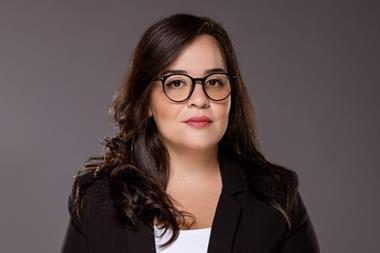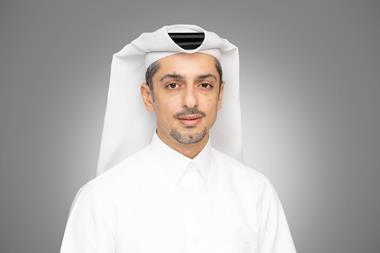Sergey Lazarev joined AirBridgeCargo Airlines (ABC) in April 2013 as operations director and two years later became general director of the Russian freighter carrier.
His daily tasks include overseeing the company’s operational and financial performance, and being available 24/7 to resolve operational issues.
He also has to foster the effective teamwork of ABC’s international group of more than 900 professionals around the world and read all submitted reports by managers from different departments including operations, flight safety, finance and sales to prevent issues and resolve problems.
Lazarev took time amid his busy schedule to answer some questions put to him by Air Cargo News.
Fleet development
Asked for an update on the order for 20 Boeing 747-8 freighters, announced by ABC parent Volga-Dnepr at the 2016 Farnborough Air Show, Lazarev says: “Volga-Dnepr Group and the Boeing Company continue to develop our strategic partnership.”
The mega-order came after an initial delivery of five B747-8 freighters.
Says Lazarev: “We are very committed to this type, and believe that only the -8F can give us the unique capabilities required to meet the demands of the market.”
He confirms that seven out of the 20 ordered aircraft are already in operation in the ABC fleet and adds: “We also have long-term leases for B747-400Fs and until today the delivered B747-8Fs were taken for the development of the fleet and network, the same as we plan for future deliveries until it is time to phase out the B747-400F due to its retirement age, which we anticipate only after 2025.”
The latest B747-8F deliveries from BOC Aviation and Intrepid were operational leases. Asked whether this was the ownership model for the remaining deliveries, Lazarev says: “Normally we do not make templates for the deals, and we approach each delivery individually on an aircraft-by-aircraft basis, when each party of the transaction has to have its return on the cargo market with high conjuncture indicators.
“Having said that I also have to point out that for sure we do have certain frames of costs for the aircraft type we know very well, above which we are not ready to commit. We are proud of our partnerships with a number of lessors and financiers, in which we can always find win-win solutions.”
Narrow body
In addition to the current ABC fleet of 18 Boeing-747 freighters, the airline also operates B737-400Fs, the base for the Atran Airlines fleet, a Volga-Dnepr subsidiary which specialises in express cargo.
Says Lazarev: “With integrators being prime customers for this segment, we keep abreast of the latest developments, market demands, customers’ needs and expectations in this sector in order to plan ahead and take steps where necessary.
“Currently we see potential demand for these types of services, but it is still under evaluation. The Boeing 737-400F is an ideal aircraft for short-haul distances and it complements Volga-Dnepr Group’s united fleet, giving our customers more opportunities for logistics solutions as part of the Group’s Cargo Supermarket concept.
“Together with the B747, An-124 and IL-76 freighters, this type of airplane enables our sales team to find the best solution for each shipment.”
ABC’s first half 2017 volumes were up 16%. How much was due to an enlarged fleet and how much to the current high demand for airfreight?
Says Lazarev: “I wouldn’t indicate the exact numbers, but considering that the growth rate of ABC’s available capacity in the first half of the year was 4% and the actual ton-kilometers performed growth was 11%, with the load factor rising by five percentage points, I can say that high demand for airfreight has had an impact on our good performance, but it is not only the demand changes that have impacted our consistent growth.”
Service focus
ABC has a varied portfolio of services, from extra-large off-size cargo (abcXL) to perishables, live animals and pharmaceuticals, with a doubling of abcPharma shipments so far in 2017 and “our ambition is for this to be even higher”.
Adds Lazarev: “Following our new product test period, we see that our partners have started to trust us more and more with their high-value pharma cargo and we are keeping our promise of continuing to deliver the quality of services they need.
“Although, in regards to overall volumes, of course the main pharma trade lanes are still between the European Union (EU) and the US, and the EU and Asia. We are seeing growing demand for pharma exports from Asia, as more new production facilities are being established in the region.”
In regard to abcXL, Lazarev states: “Operating a large number of B747-8Fs with unique capabilities such as nose loading for outsize cargo and having 27 years of Volga-Dnepr Group expertise in the transportation of heavy and outsize cargo, we are able to provide our customers with customised solutions for optimal logistics.
“Our abcXL service is in demand, especially among the customers representing the aerospace, oil & gas and heavy machinery industries.”
He continues: “As for geography, it’s not a secret that this year high demand comes from exports and imports in Asia. During the first eight months of 2017, ABC carried 14% more goods ex-Asia than in the same period of last year, with the highest growth rates in demand on services to North American destinations at the [growth] level of 17%, followed by Europe at 14%.”
There have been a few high profile departures from ABC in the last 18 months (Denis Ilin and Robert van de Weg) which gave an impression of revolving door management. Is this a fair comment?
He responds: “Without a doubt Denis and Robert have both made significant contributions to the development and growth of ABC. Their management, ideas and all the effort they put into ABC’s development has helped to make it possible to achieve the results ABC is demonstrating.”
What are the strategic plans to grow ABC in the coming two to three years? “We have not changed our strategic goals and are still on the path of achieving them, focused and determined.
“Among our priorities are fleet enlargement under our partnership with Boeing, further improvement of service quality, to increase our marketshare for niche products (pharma, perishables, off-size, etc), and network expansion in line with customers’ expectations and needs in the regions we are present and beyond.”
Is ABC considering any other aircraft types? “So far ABC has been committed to the Boeing 747 type, which is ideal for our business model and network, it meets all our requirements. However, we all see how the world of air logistics is changing, and we are responding to customers’ needs and market sentiments.
“At ABC, we are always ready to find ultimate solutions for the market when we see new benefits for our customers. Based on that, we will take appropriate decisions when needed.”
ABC has focused on building a network connecting Europe, Asia and North America; but does it have plans for other regions such as South Asia, South America or Africa, and can these markets sustain B747F operations?
“Under our strategic goals we are planning further network expansion in line with market demand and subject to commercial traffic rights.
“For the last couple of years we have all witnessed positive and negative changes in the countries of South America, South Asia and Africa, with the development of cargo infrastructure and the entry of multinational companies to these markets. As soon as we see stable and rising demand for our services we will seek new opportunities with our customers.”
Last year, Volga-Dnepr Group and Moscow’s Sheremetyevo International airport inked a strategic agreement on long-term partnership and co-operation in the field of cargo hub development.
Airport investment
Asked about the Moscow hub, Lazarev says: “We are particularly interested in the continued enhancement of Sheremetyevo’s service quality as this is our hub airport for import/export, transfer and transit operations, which have seen growth of 19%, 40% and 21% respectively for the first eight months of 2017 year on year.
“The airport is focusing on the qualitative side of infrastructure enhancement with the building of an up-to-date hangar complex for MRO and expansion of its cargo facilities for special commodities, such as pharma, perishables, livestock and others.”
In September 2017, Sheremetyevo completed the reorganisation of its warehouse premises for import shipments, which will facilitate warehouse logistics and speed up the cargo handling process.
New cargo terminal facilities will increase handling capacity up to 1m tons of cargo per year with a footprint of 42,300 sq m.
Says Lazarev: “Our company and our customers have recognised and appreciated these changes and we are working together for further enhancement of services.”
ABC has also developed a sizeable B747 charter business – but how does it cope with this given the demands of its scheduled cargo network — and are charters something that ABC wants actively to grow?
“ABC’s core business has always been scheduled cargo operations.
“With the company’s growth, building its reputation as a reliable partner and the unique expertise of Volga-Dnepr Group in the charter business, we have started to pay more attention to the opportunities open in the B747 charter segment.
“But I have to emphasise that although we are considering every opportunity to support charter enquiries and to provide a customised solution, the decision made on transportation is based on the fact that it doesn’t damage the quality of our scheduled services.”
There have been recent examples of Volga-Dnepr Airlines and ABC combining charter and scheduled services for specific outsize or heavyweight cargo deliveries as part of the Group’s ‘Cargo Supermarket’ offering.
How much co-operation is there between the two airlines and how is this benefitting customers?
Says Lazarev: “The Cargo Supermarket is a unique platform within Volga-Dnepr Group (VDG), which unites professionals and highly-skilled specialists from all VDG companies to deliver the best customised solutions for different types of cargo, with oversize being in demand.
“With cross selling options in all regions, our customers can be sure that their requests will not be left unanswered”.
Looking ahead
What are the biggest challenges and opportunities for scheduled cargo airlines in the years ahead?
Answers Lazarev: “The high volatility of factors impacting airfreight demand makes it a challenge to make strategic plans and implement them.
“Nevertheless, the company always looks ahead in order to be proactive to the changes in the logistics market.
“Requirements from shippers are changing all the time and they differ so the challenge is to be right on time or to even foresee what our customers need before they even think about it and to be ready to meet their requirements.
“Of course we are focused on niche products and the development of our service quality.
“This goes together with IT solutions which are paramount nowadays with high-technology changing at such a rapid pace.”










